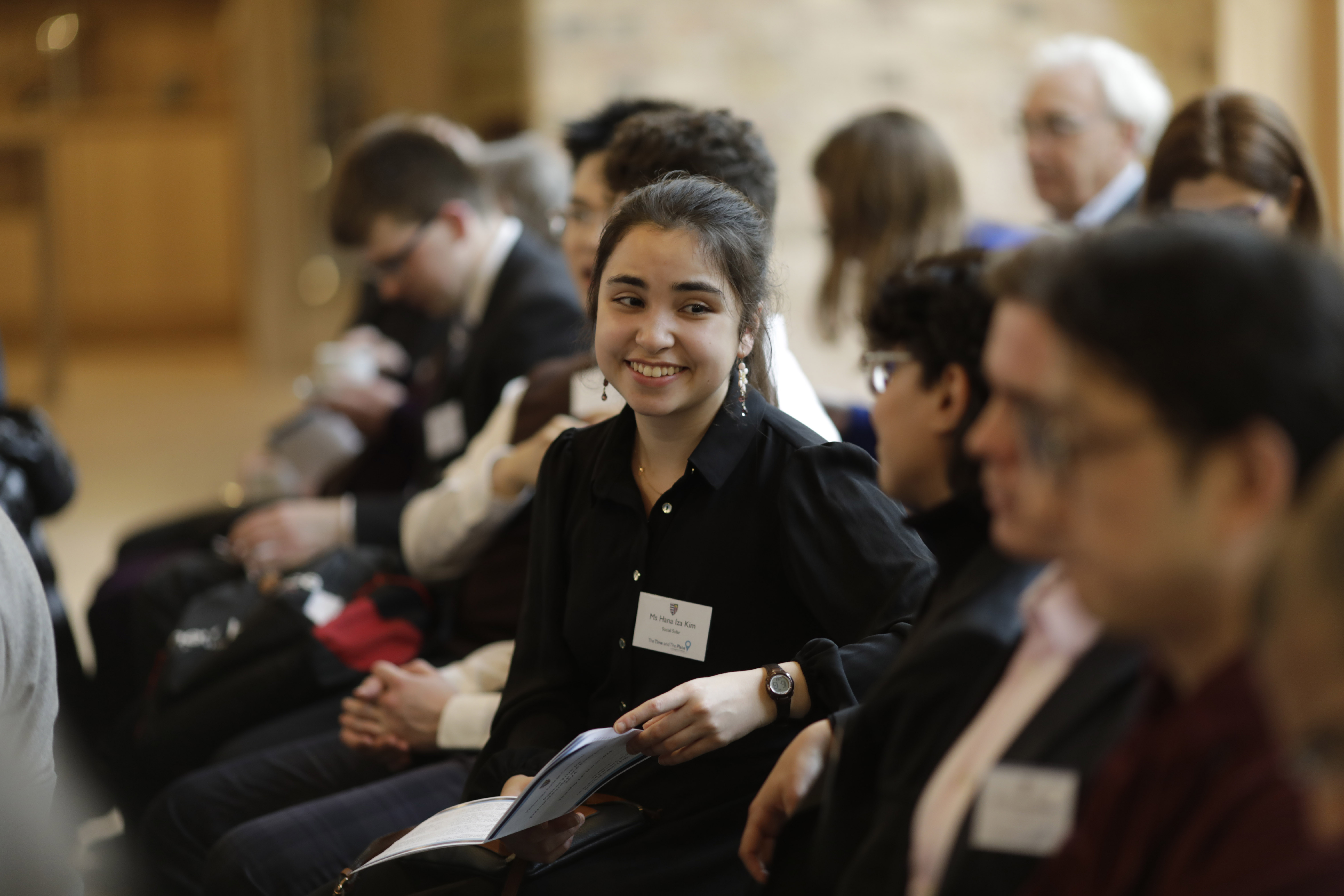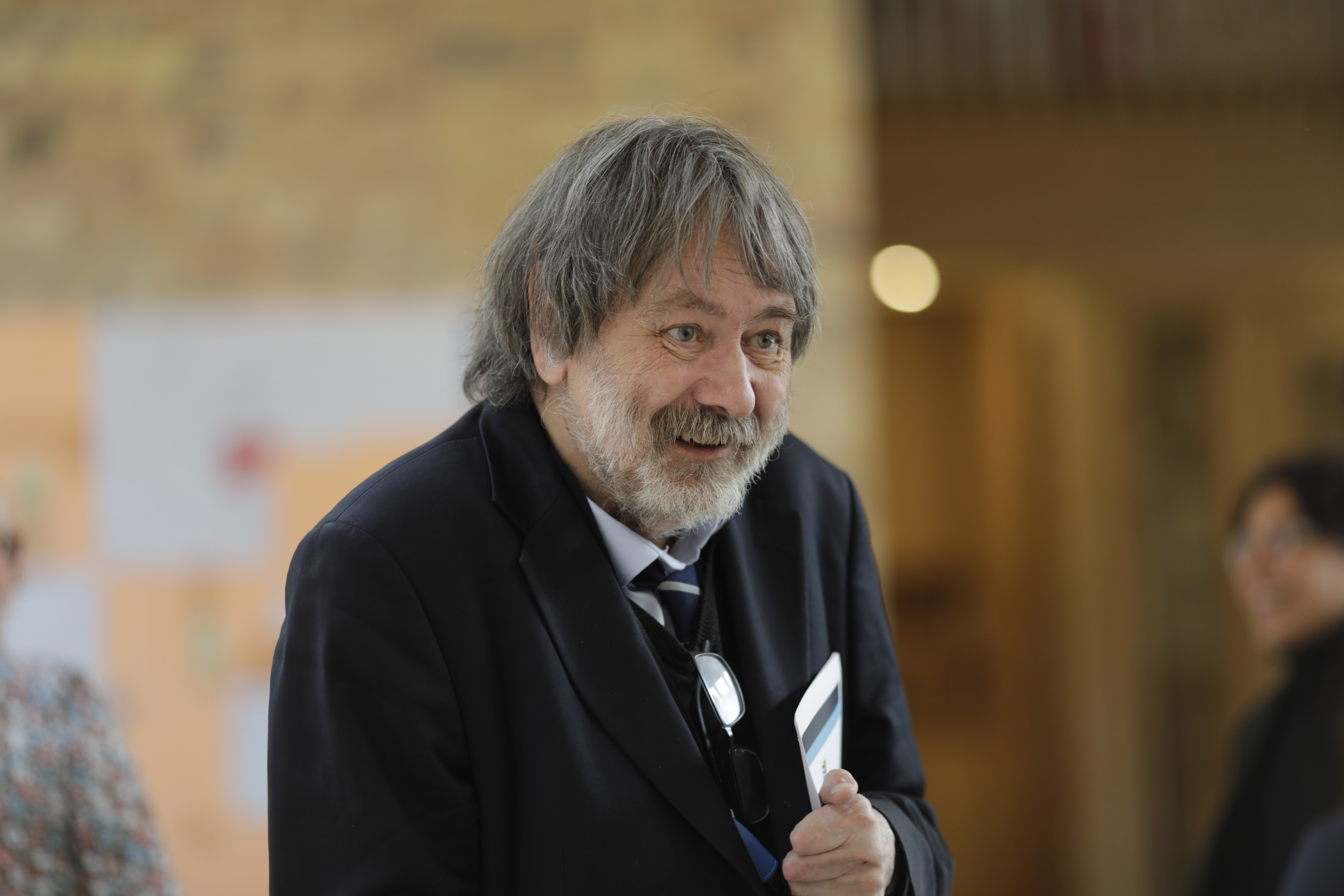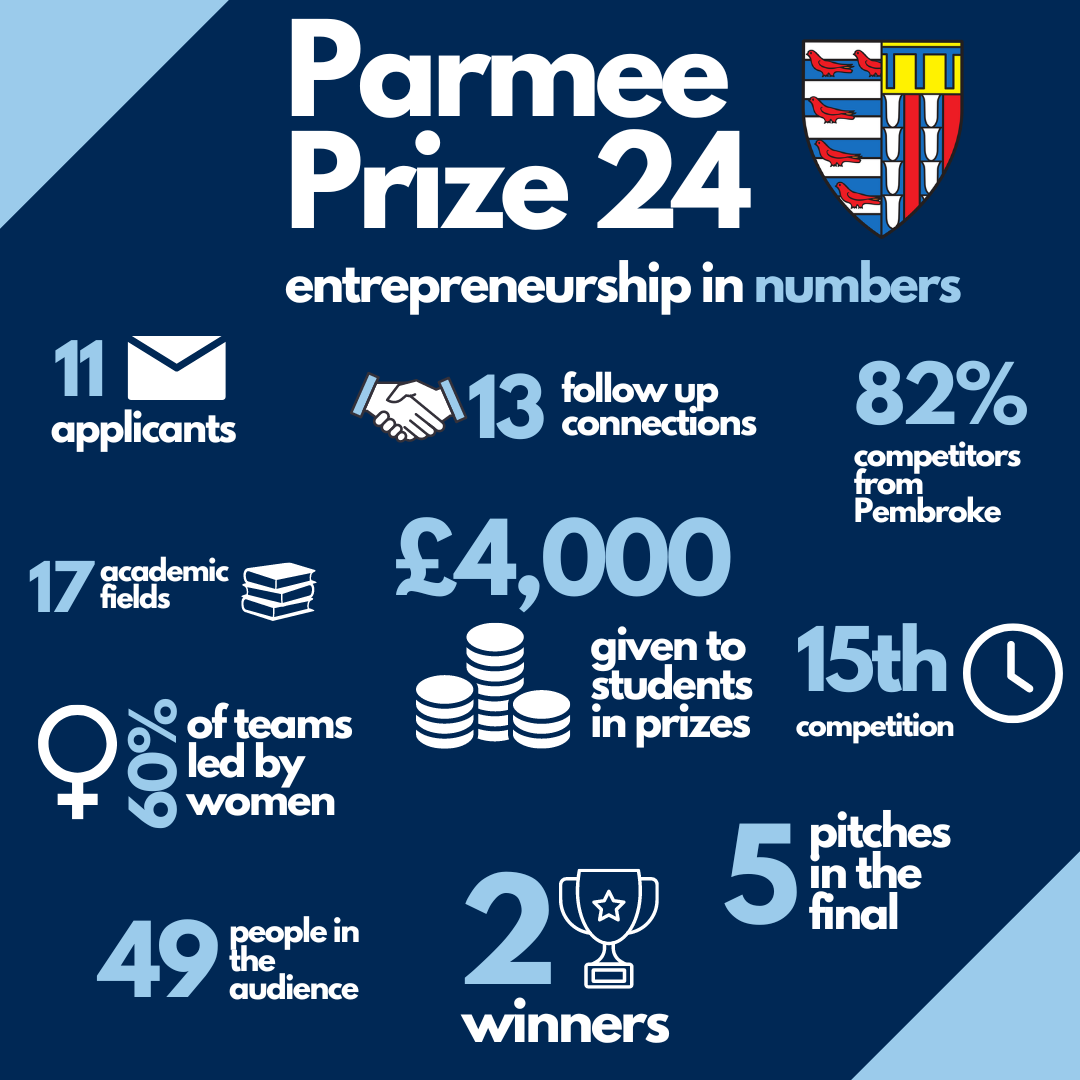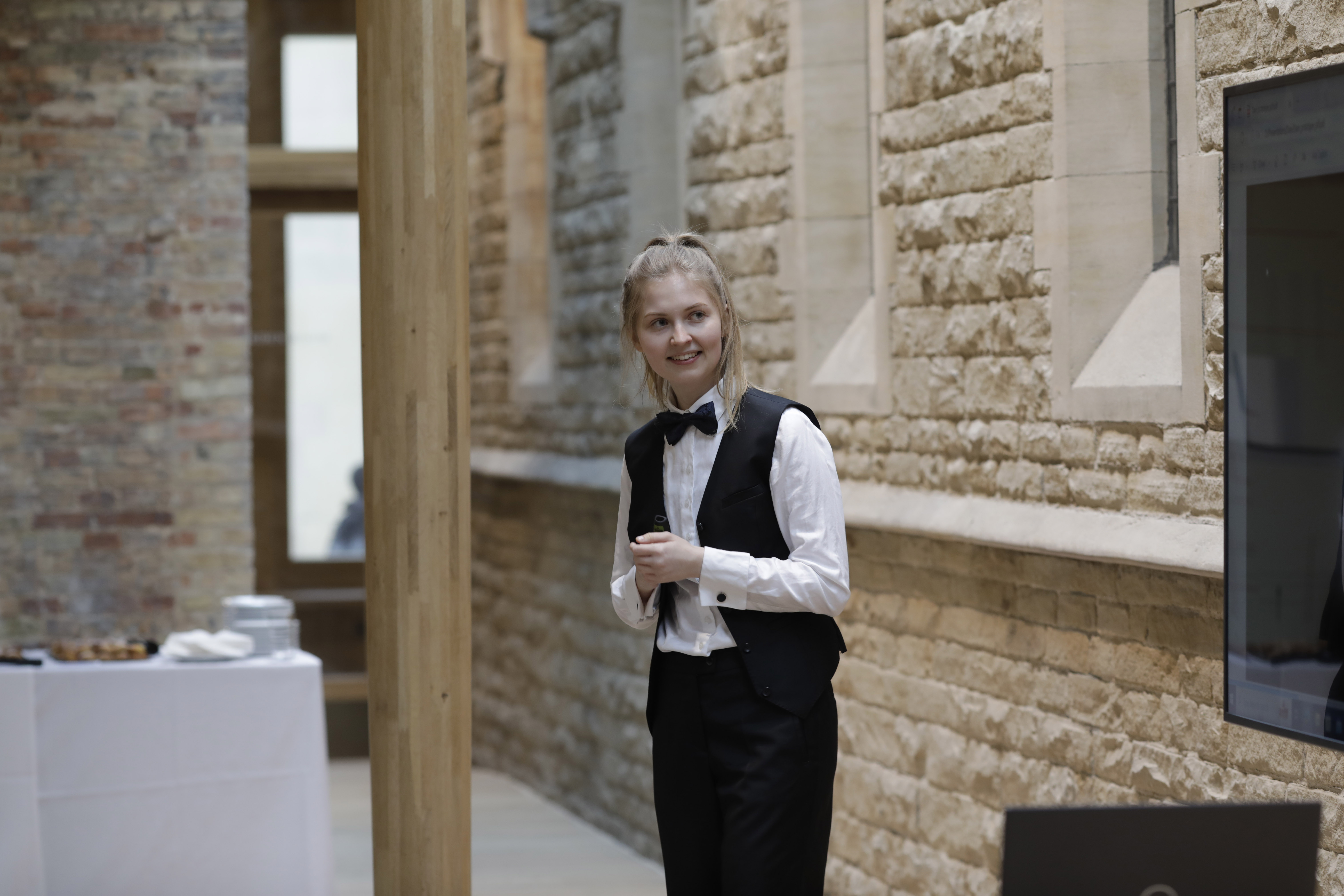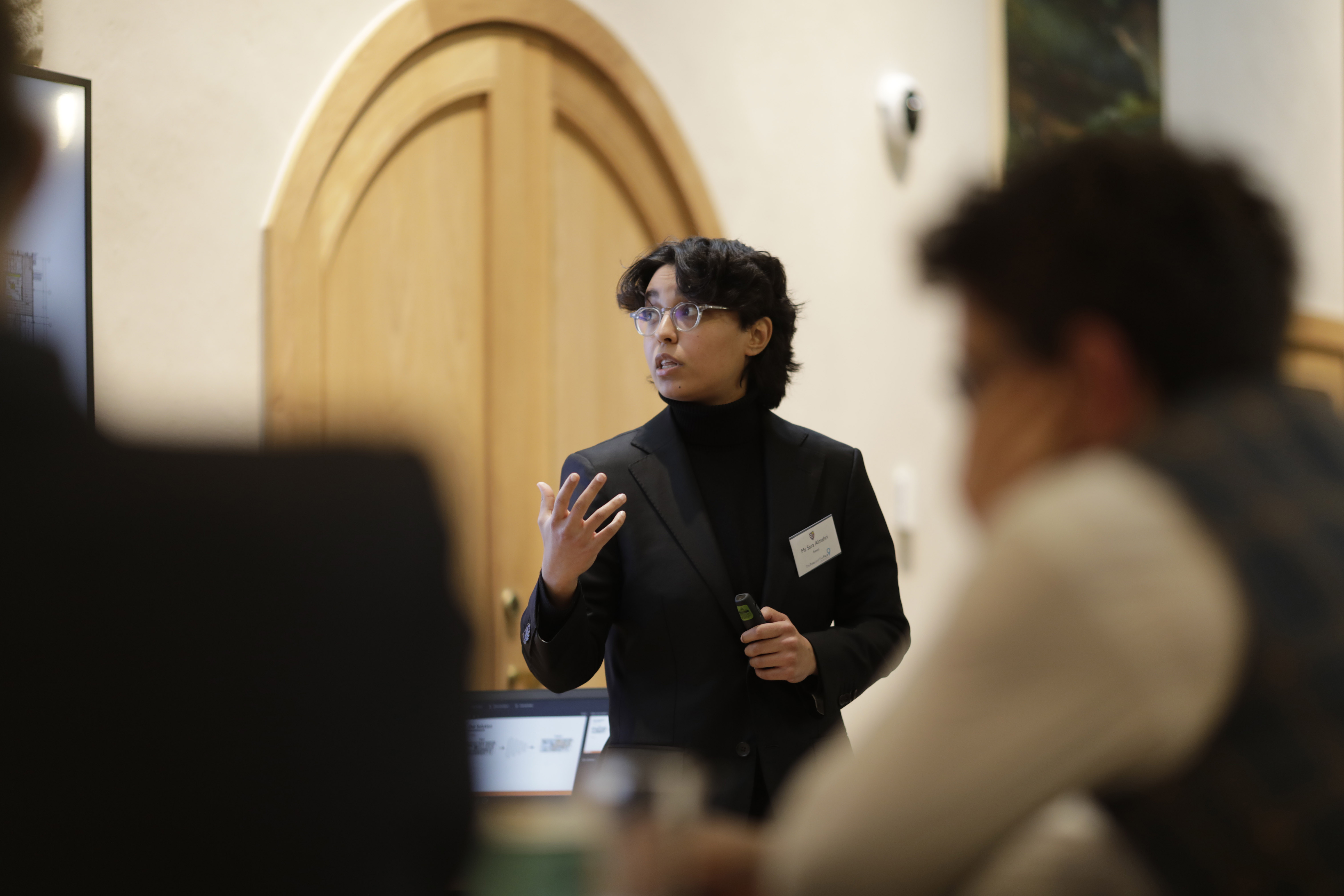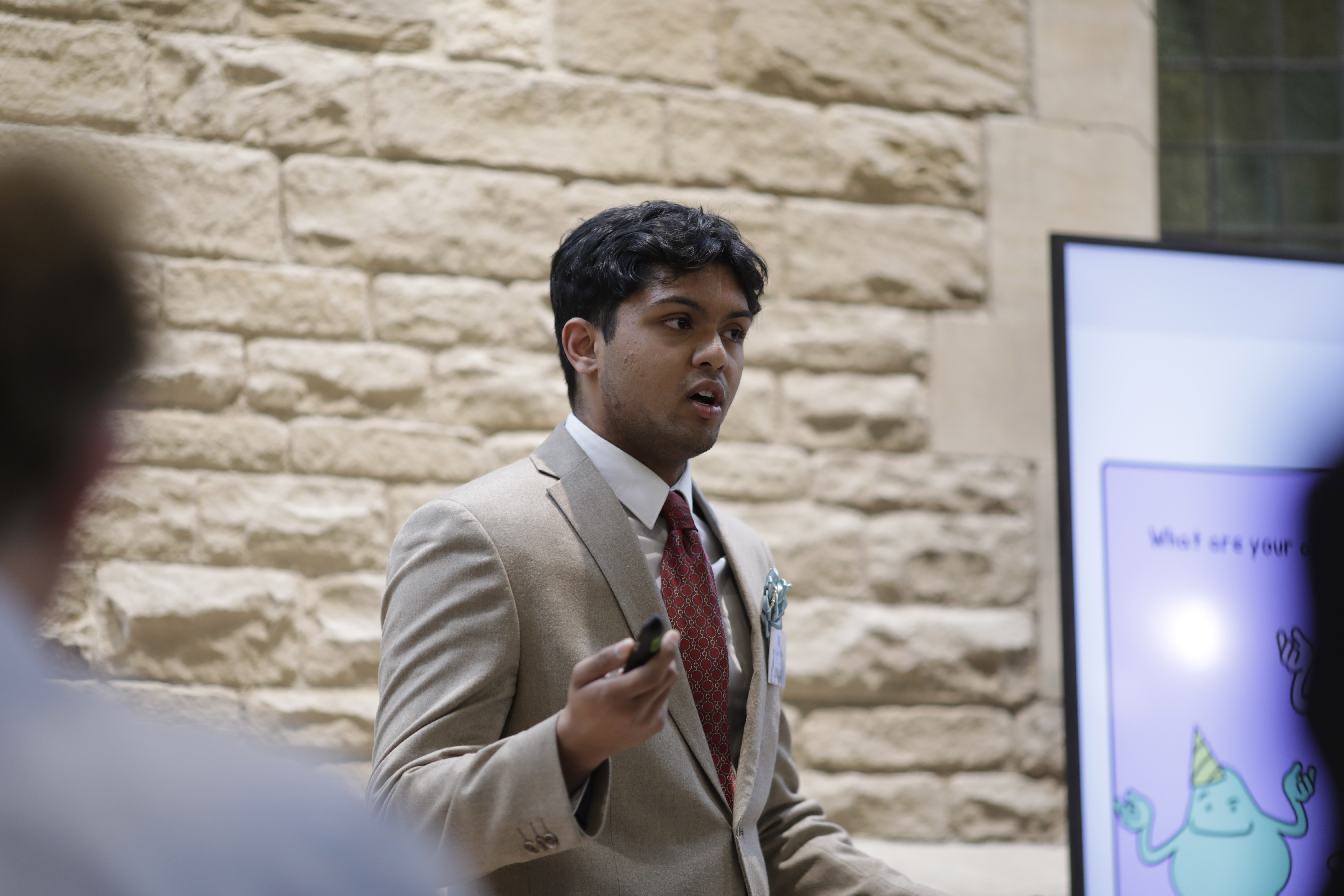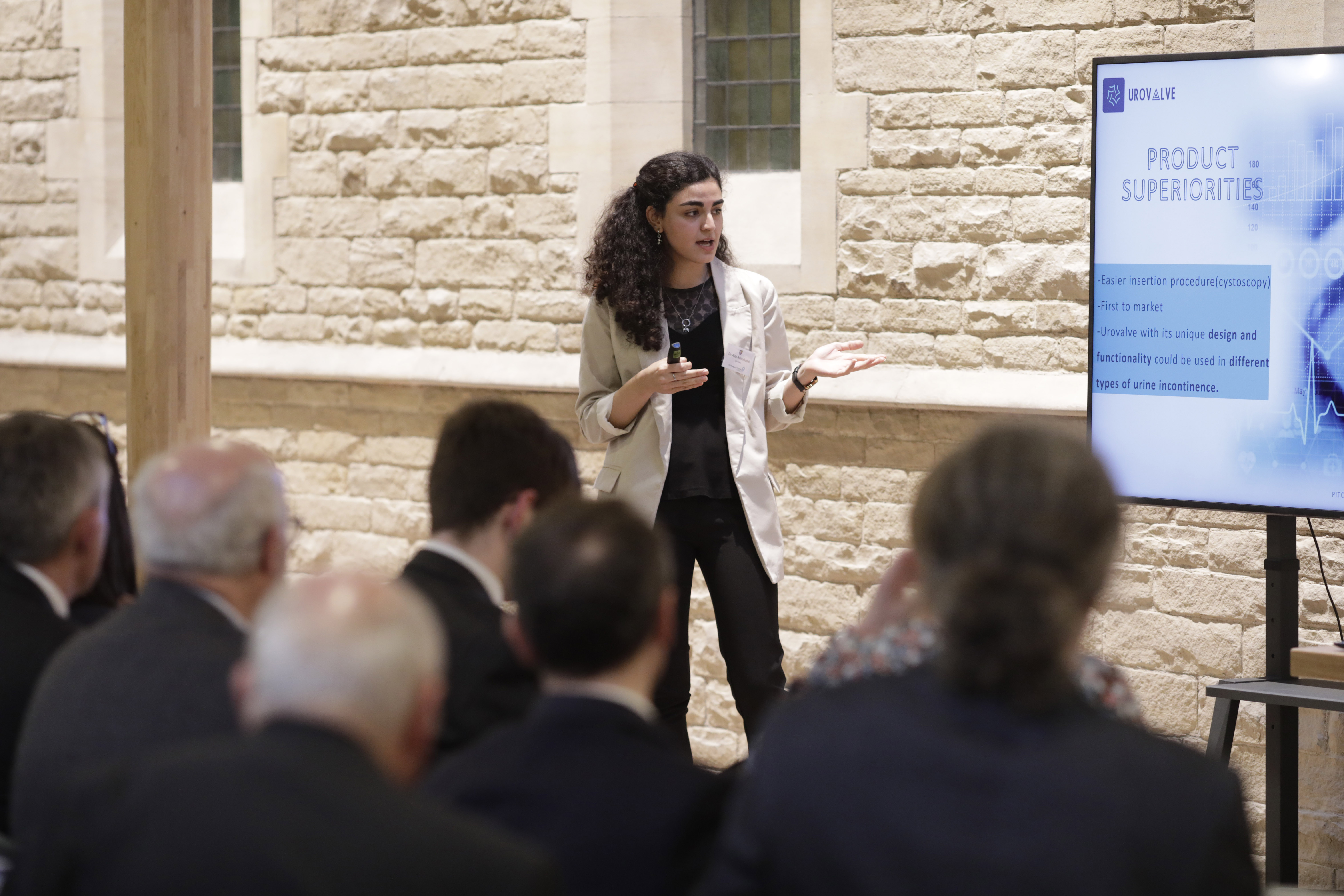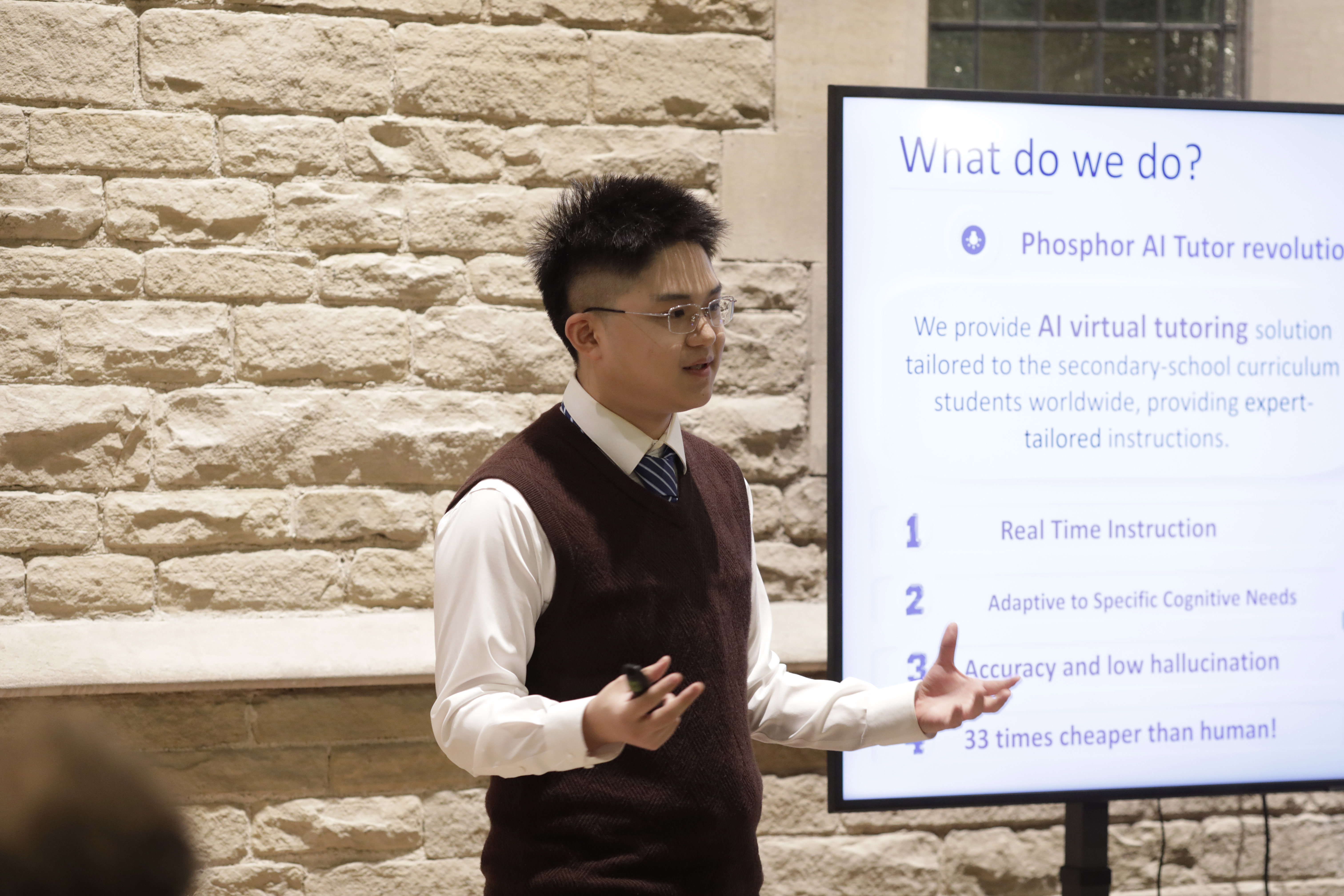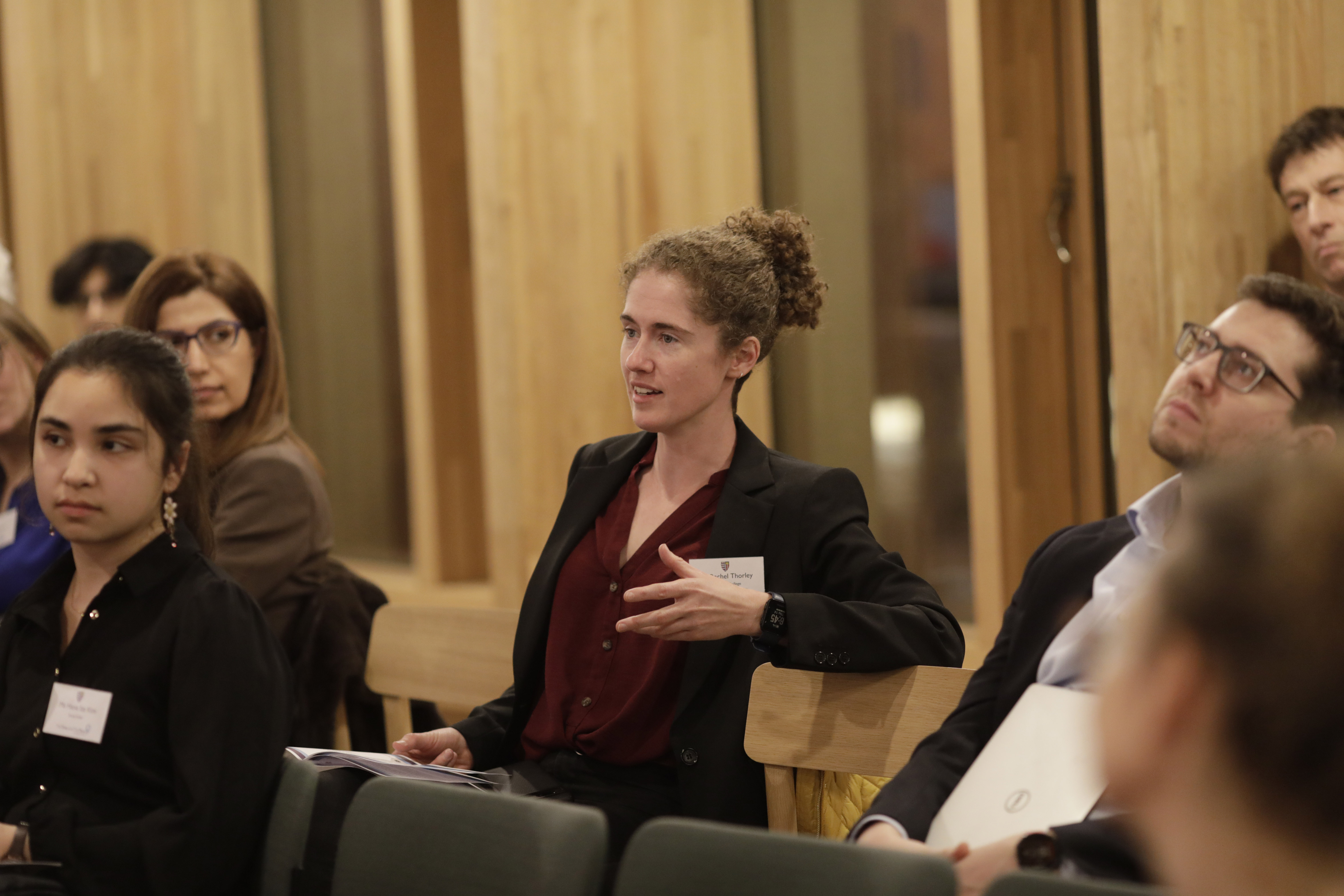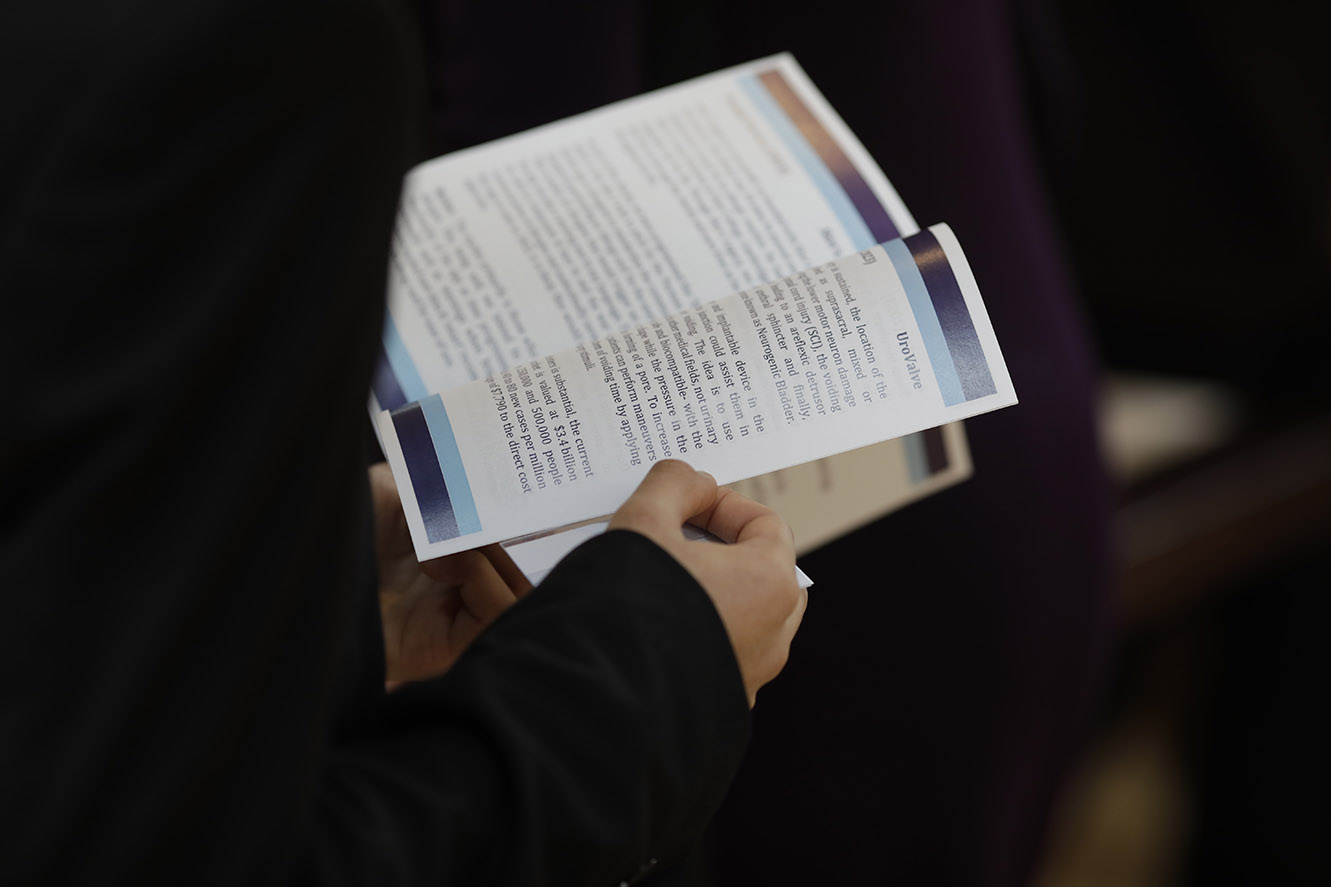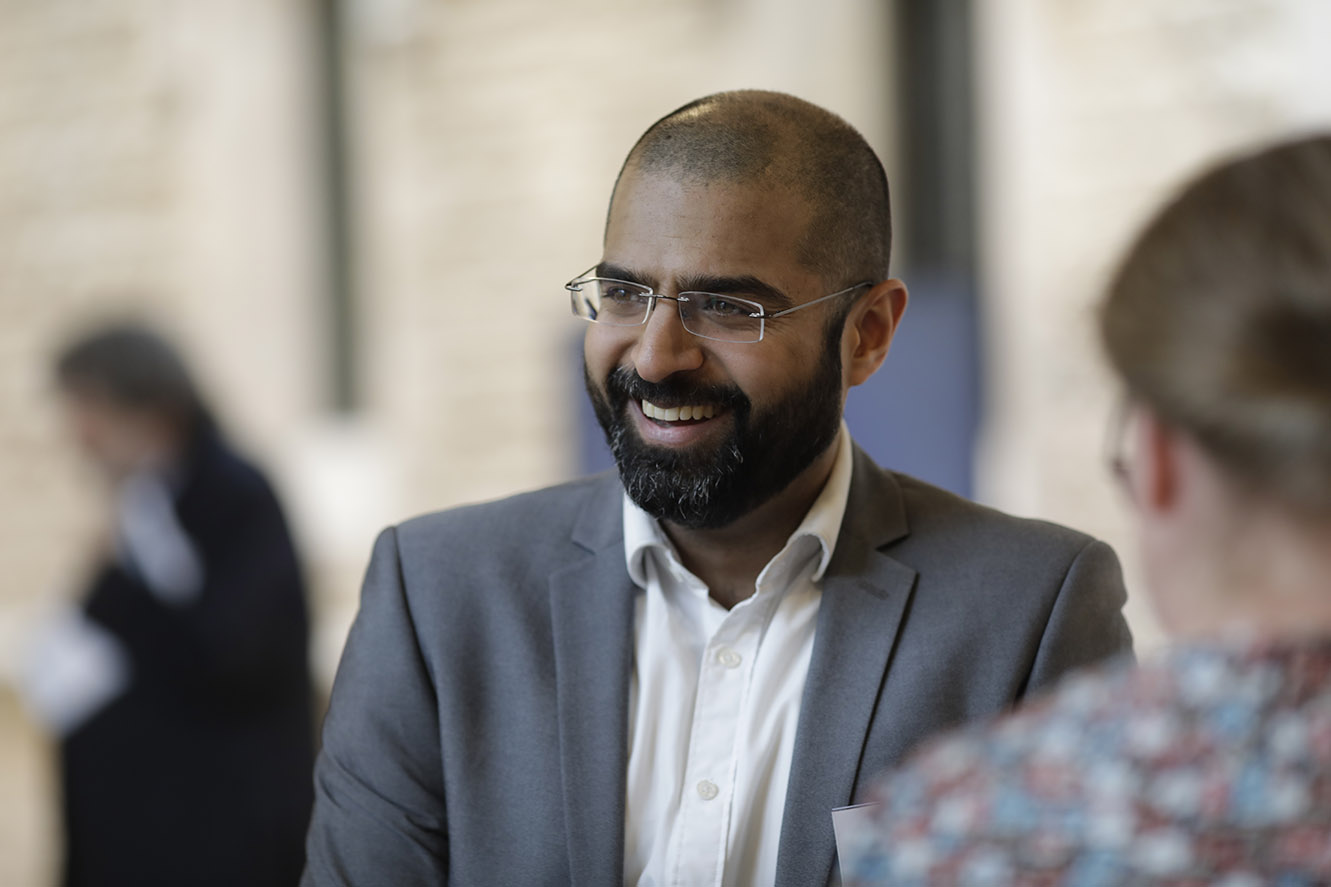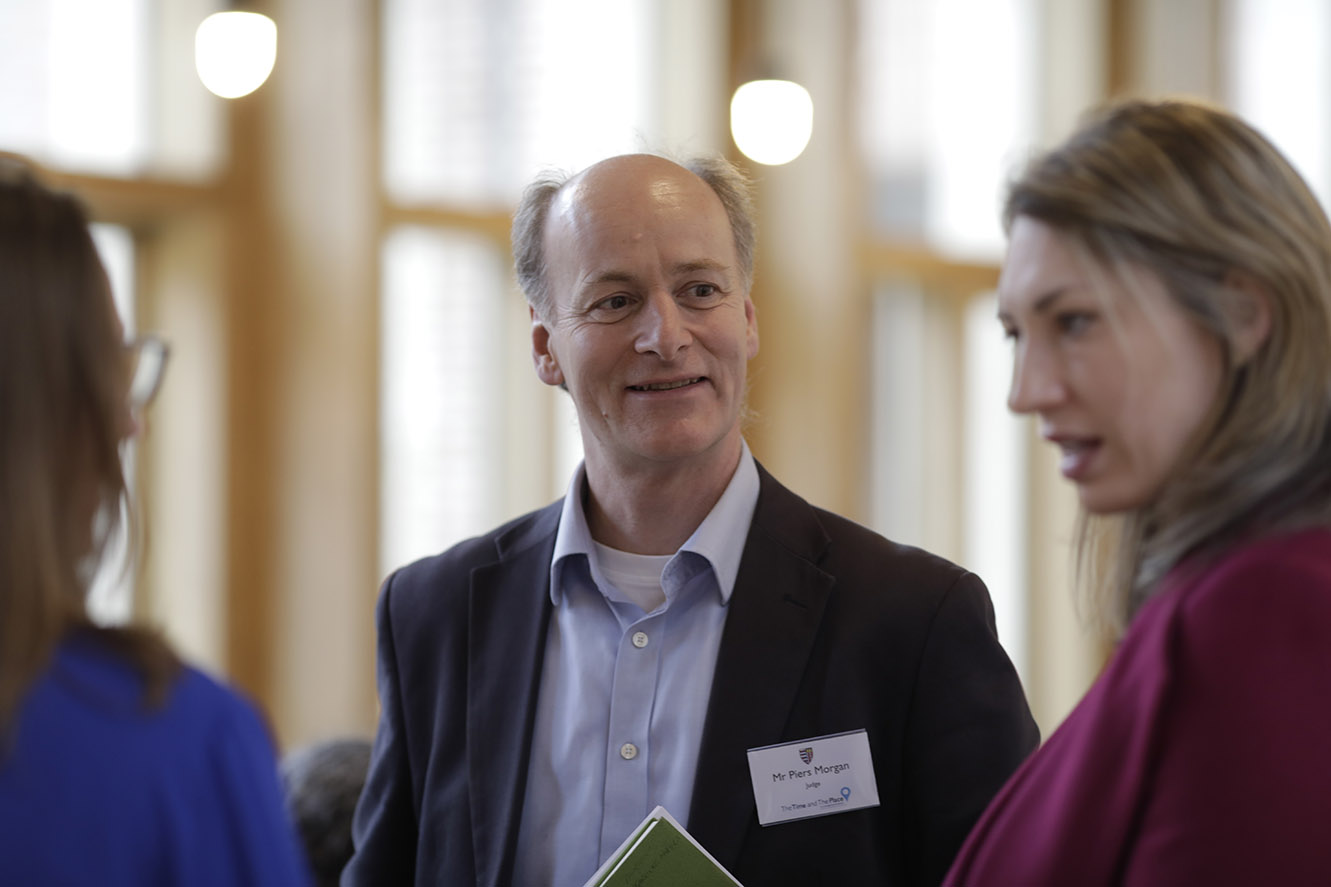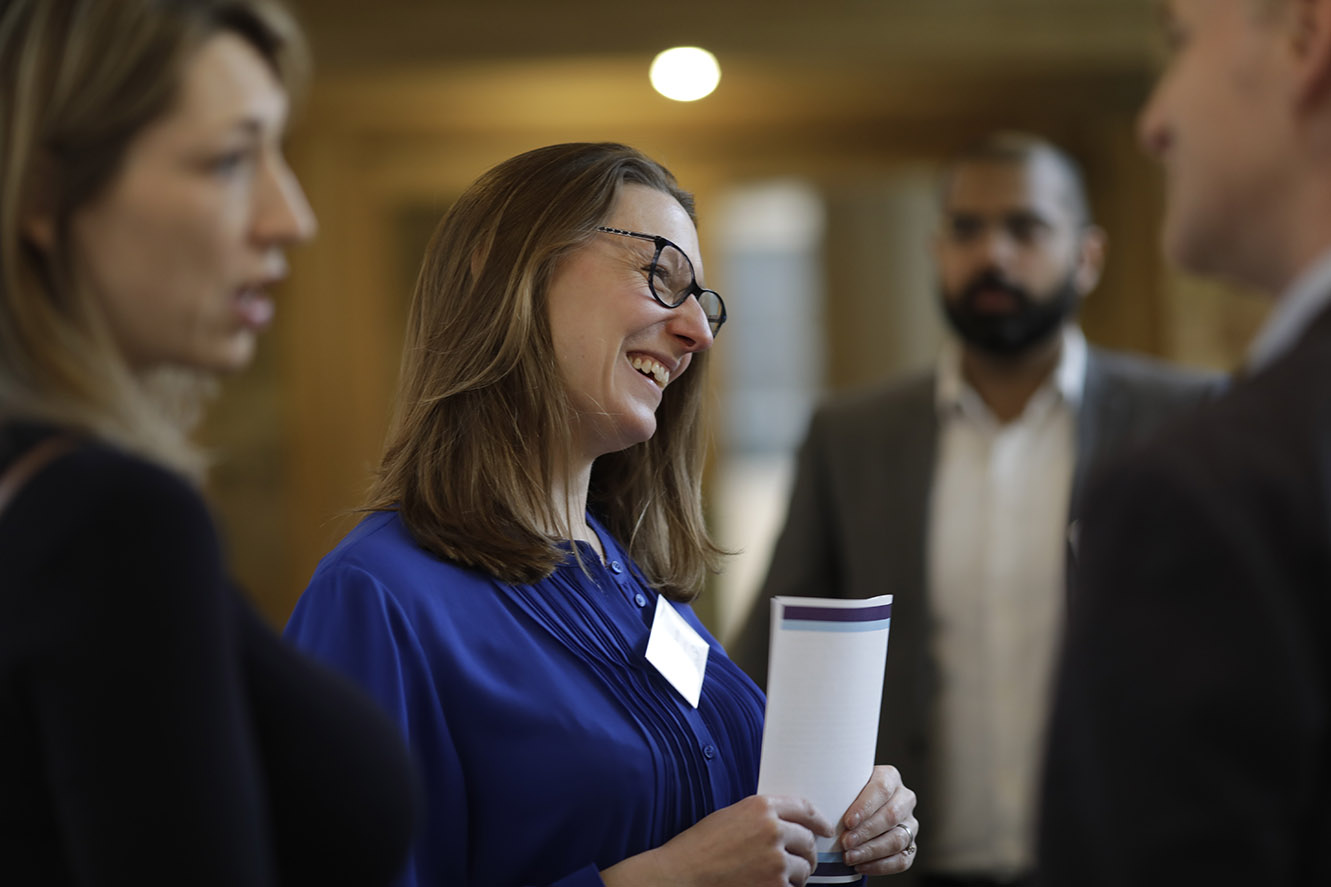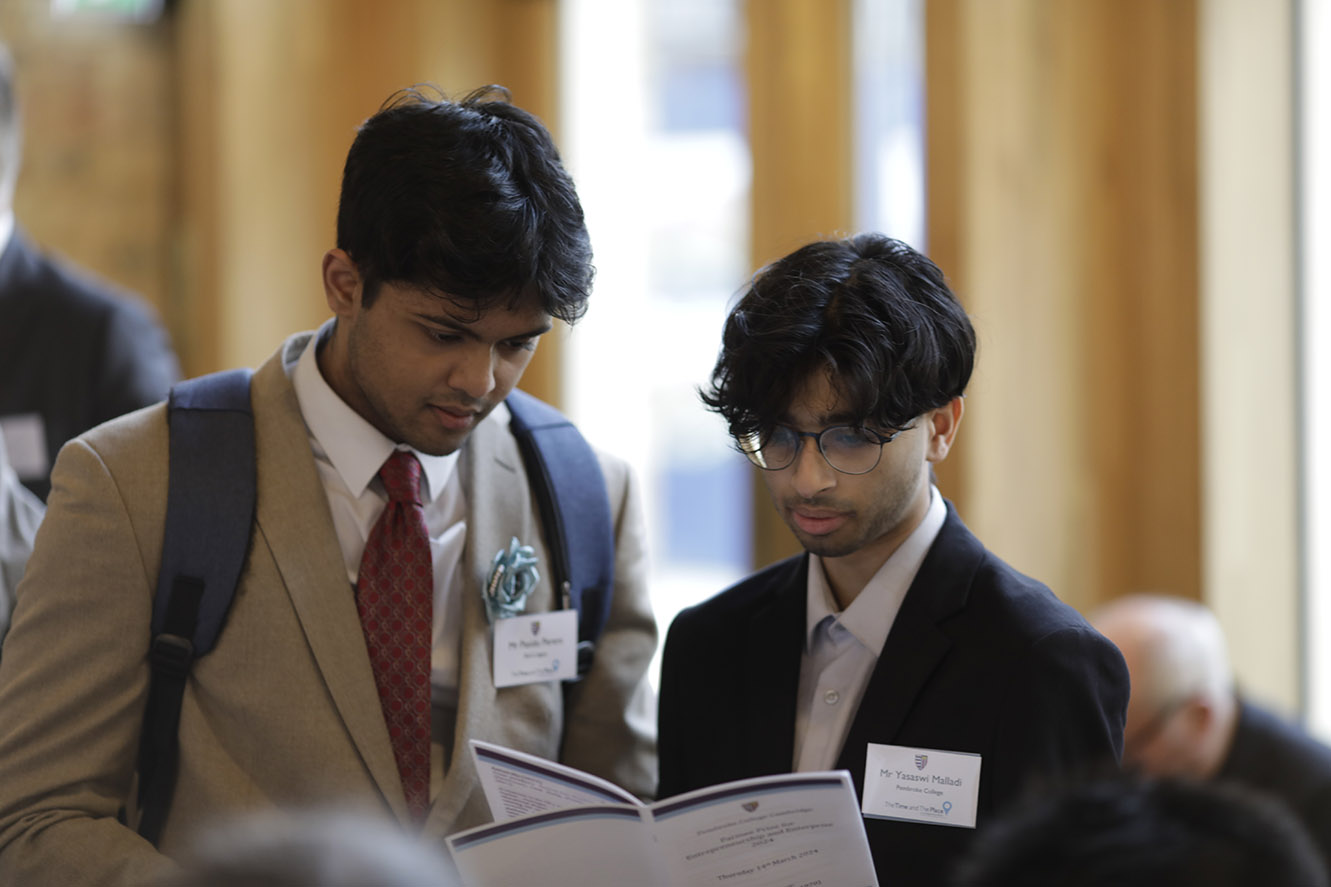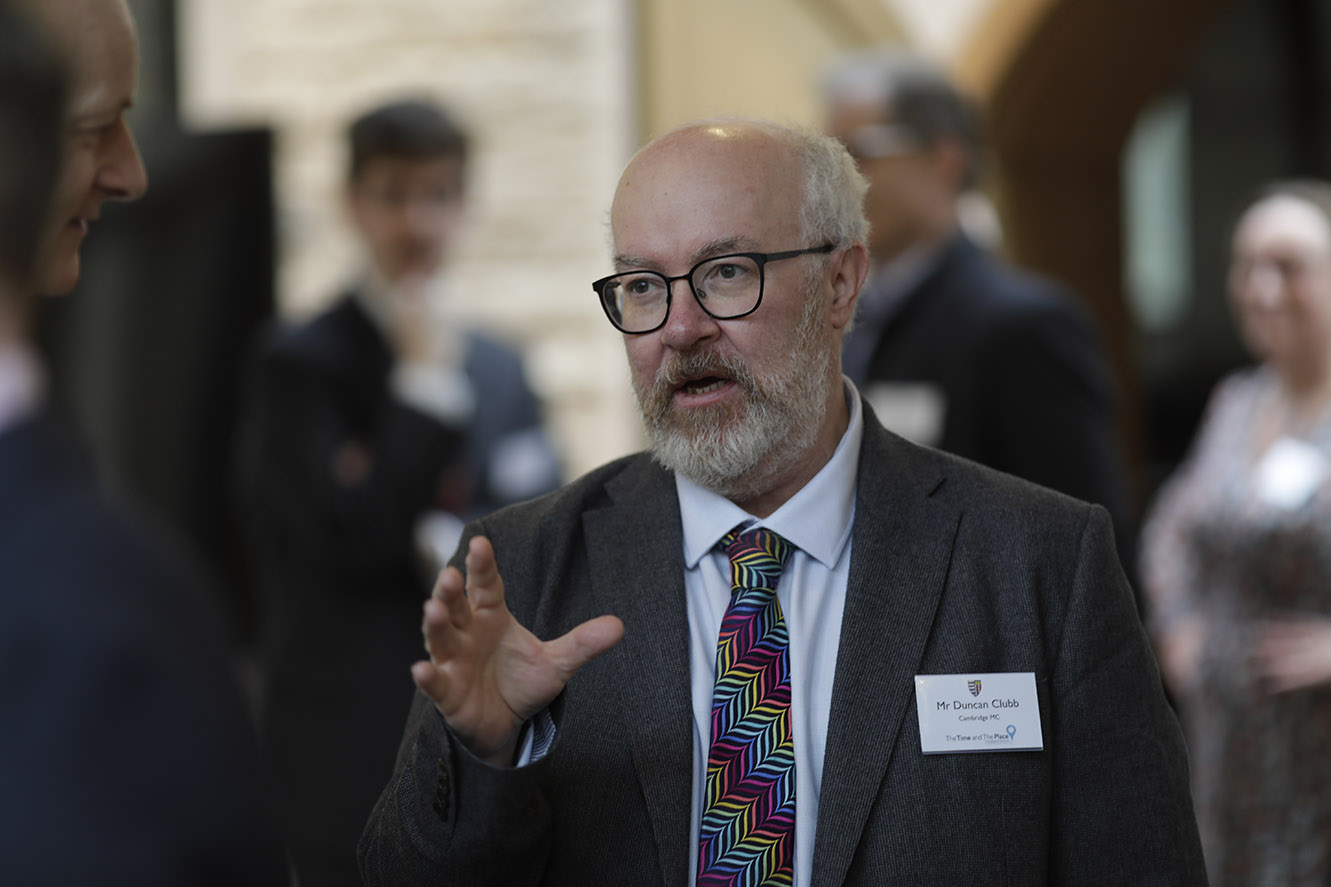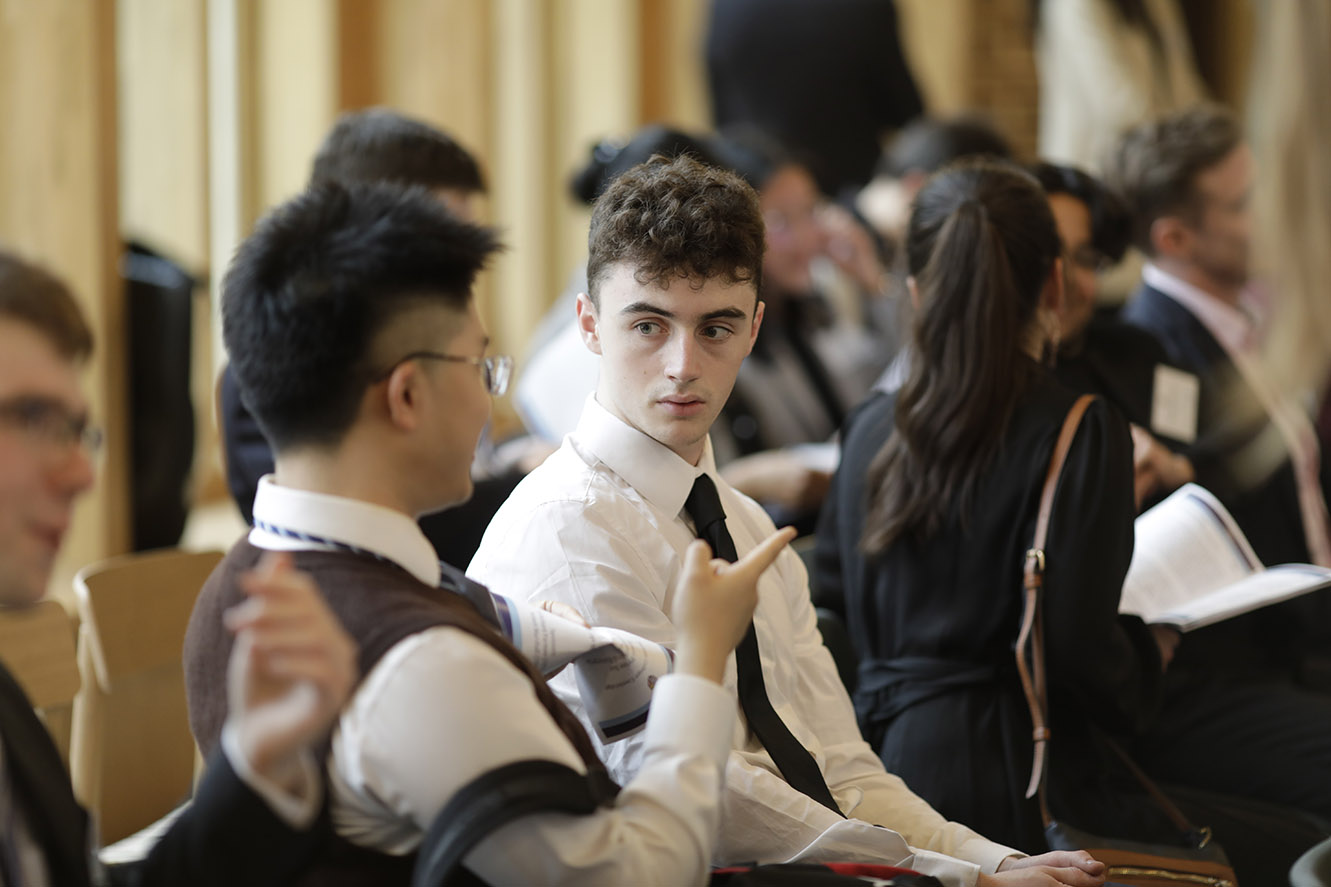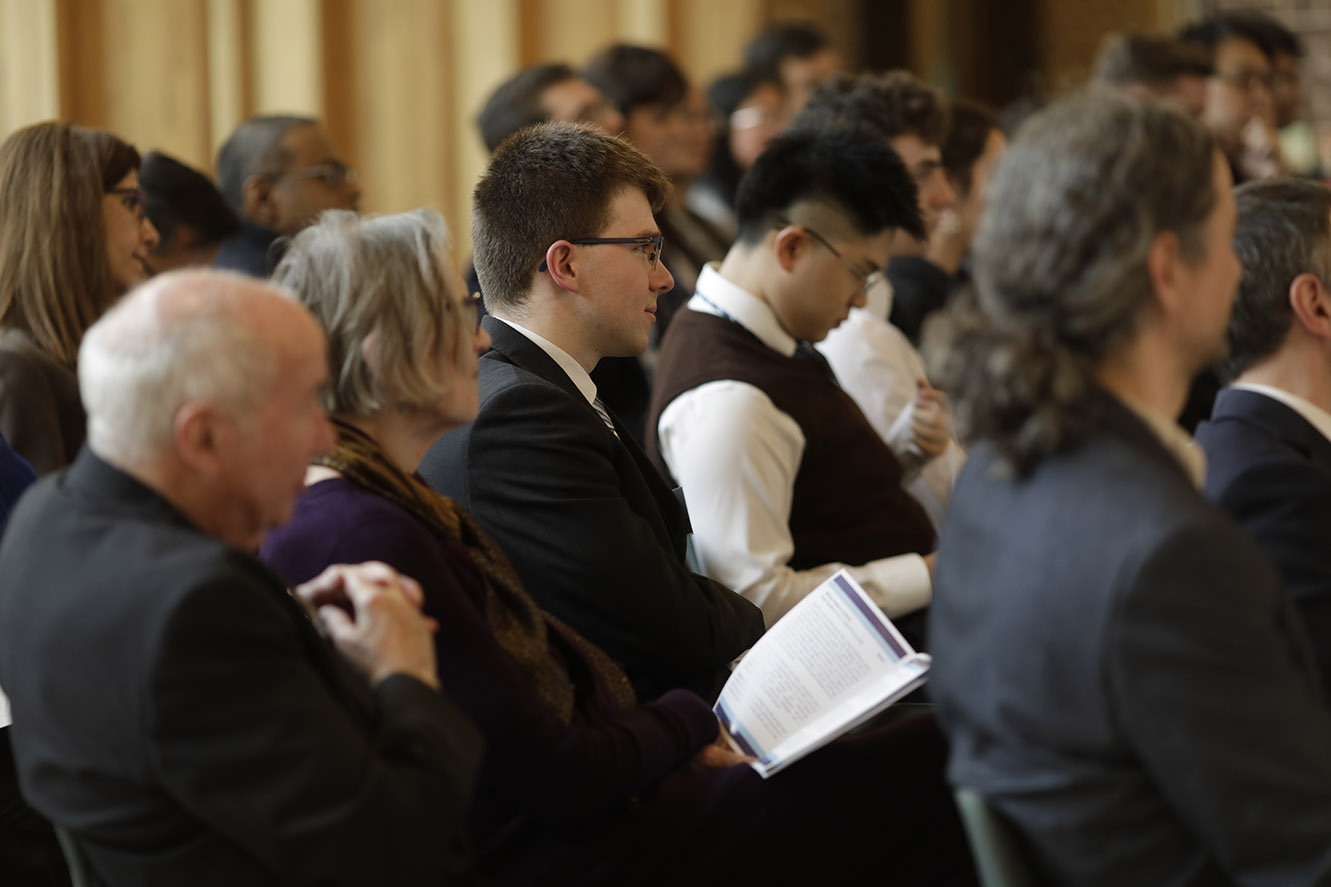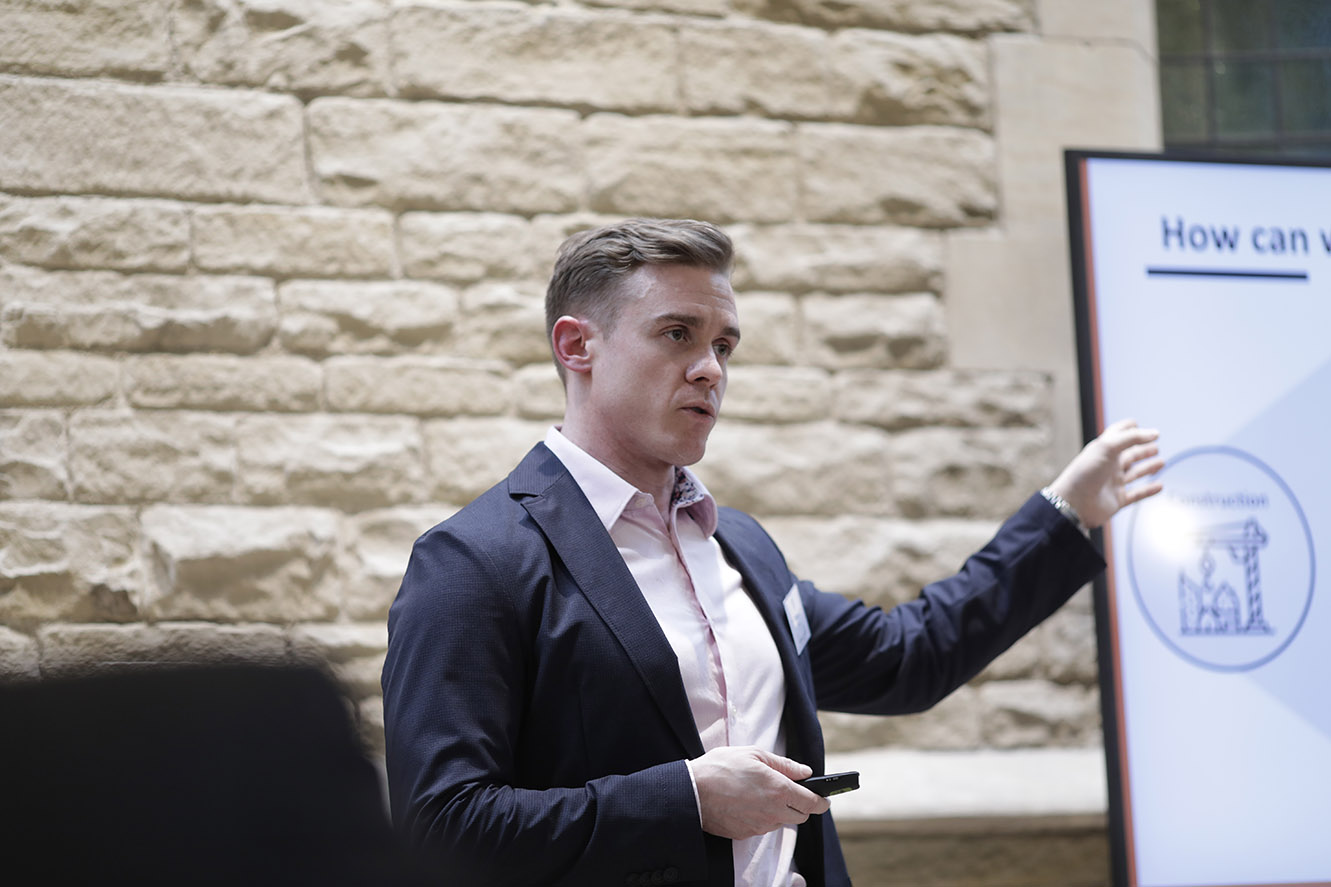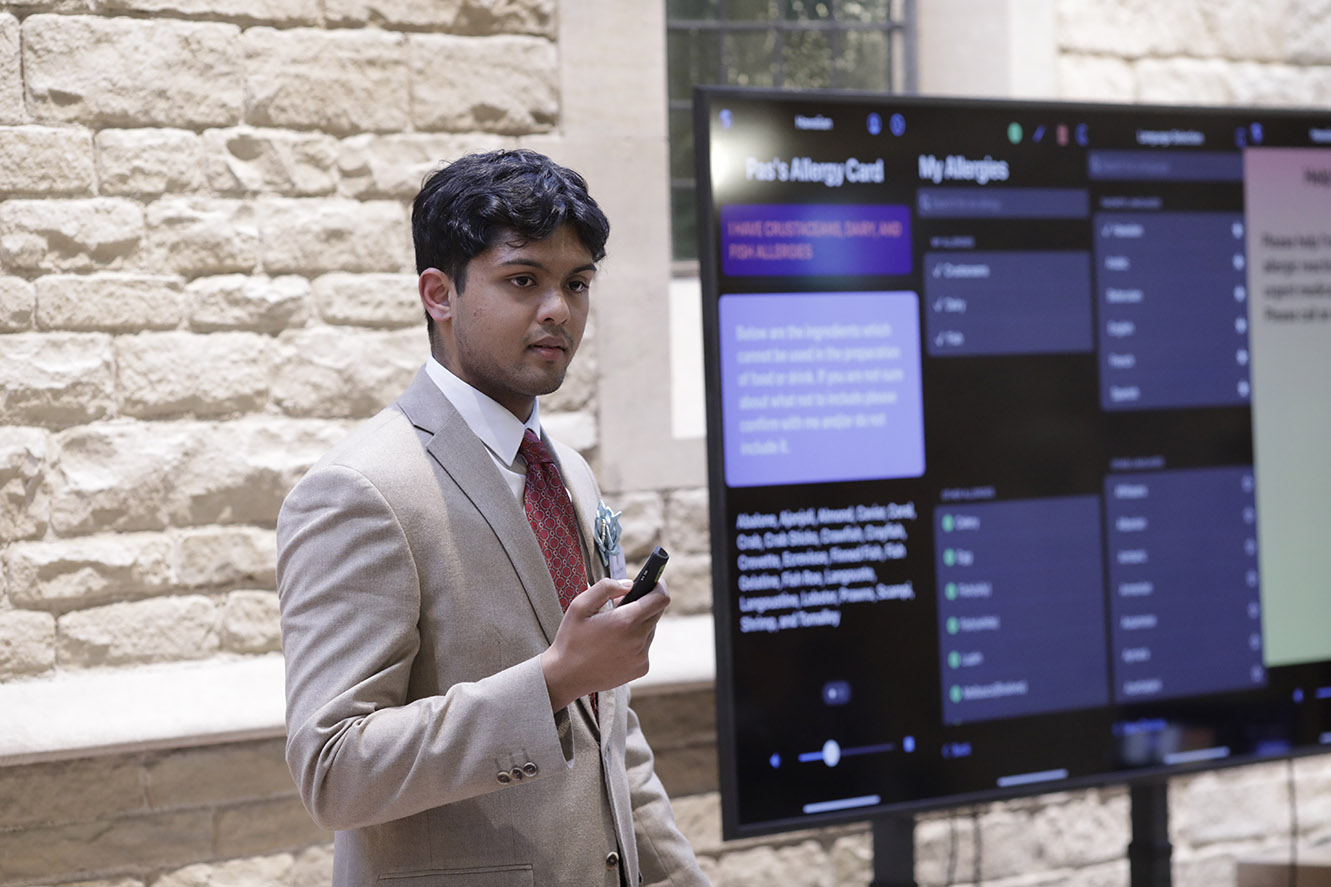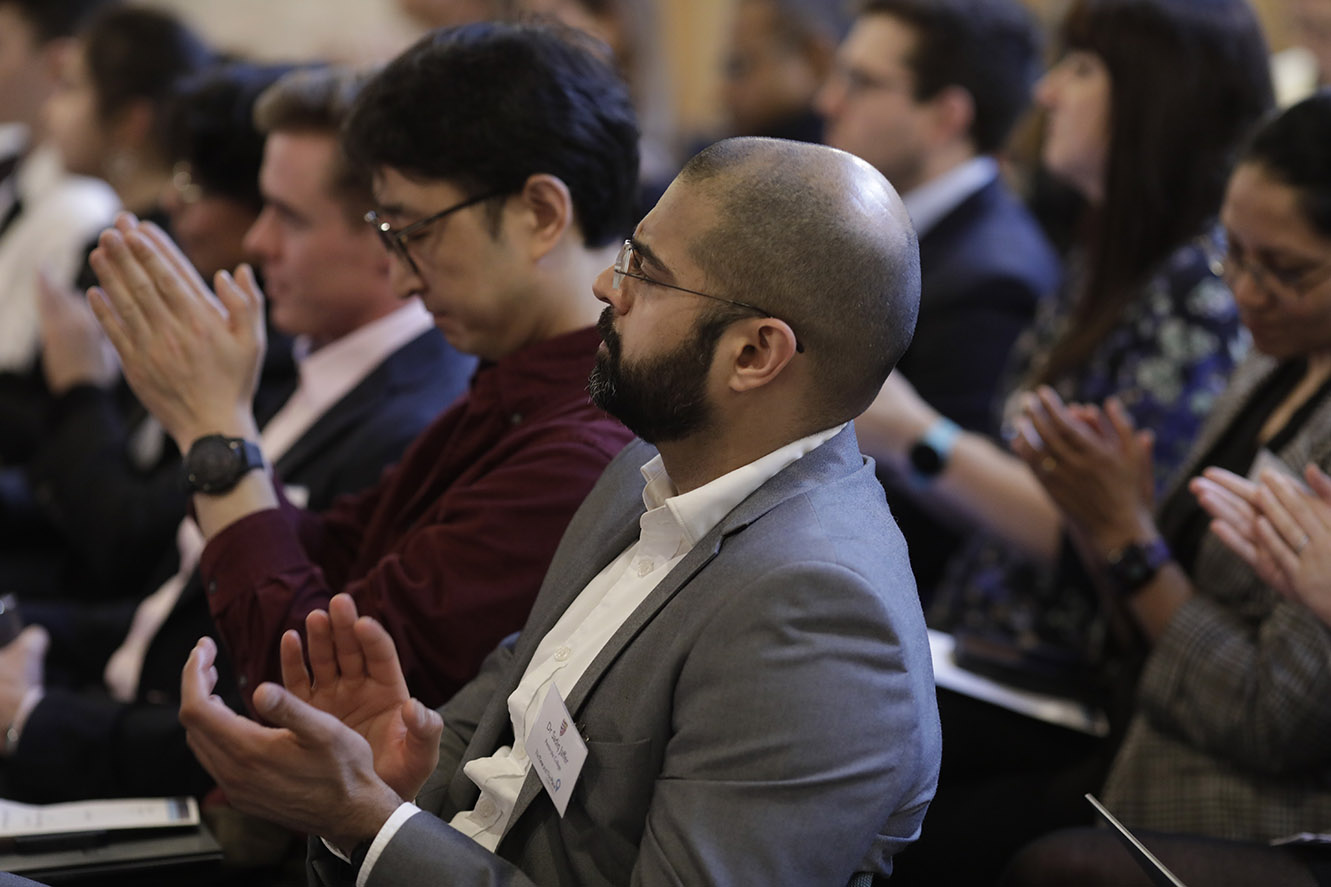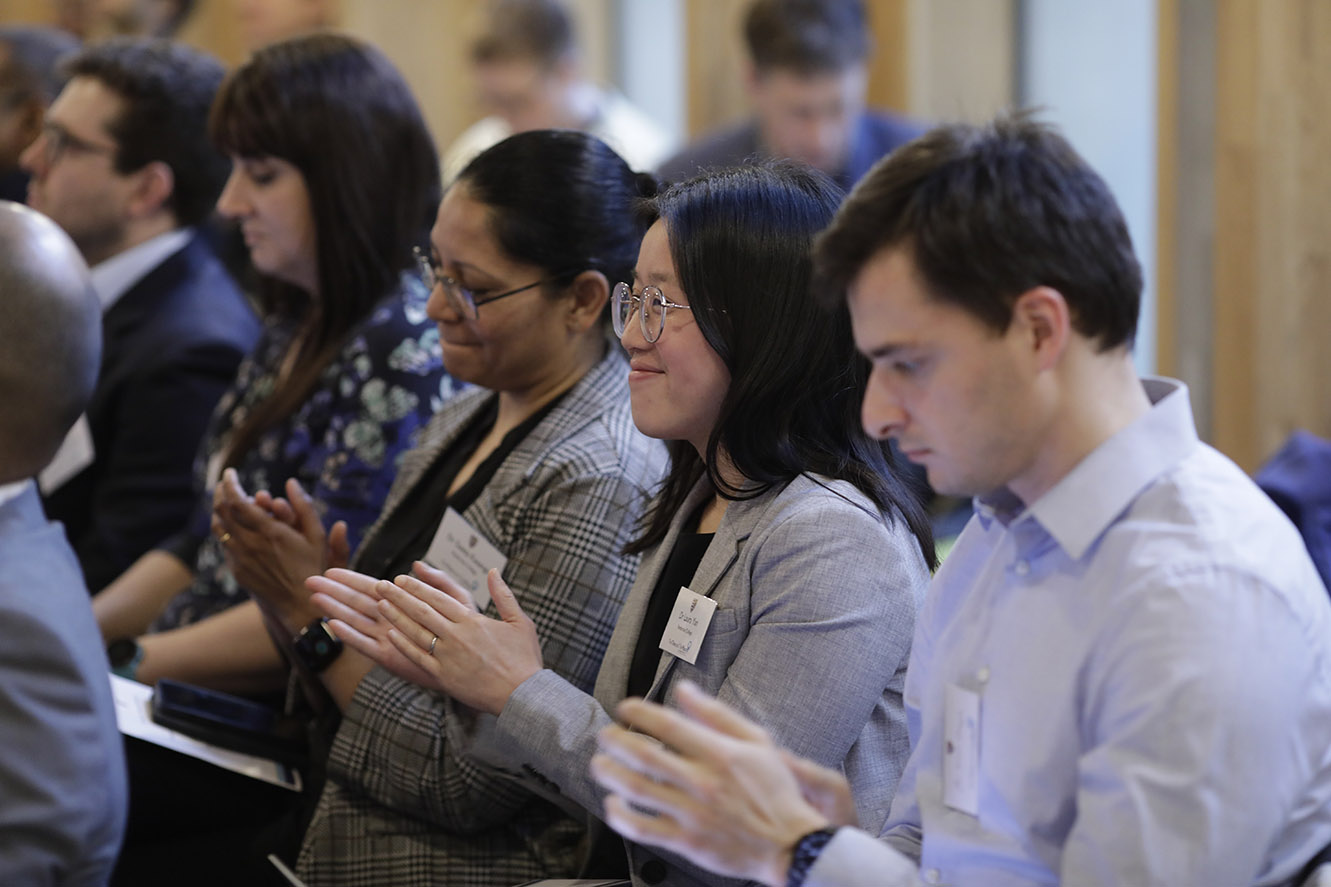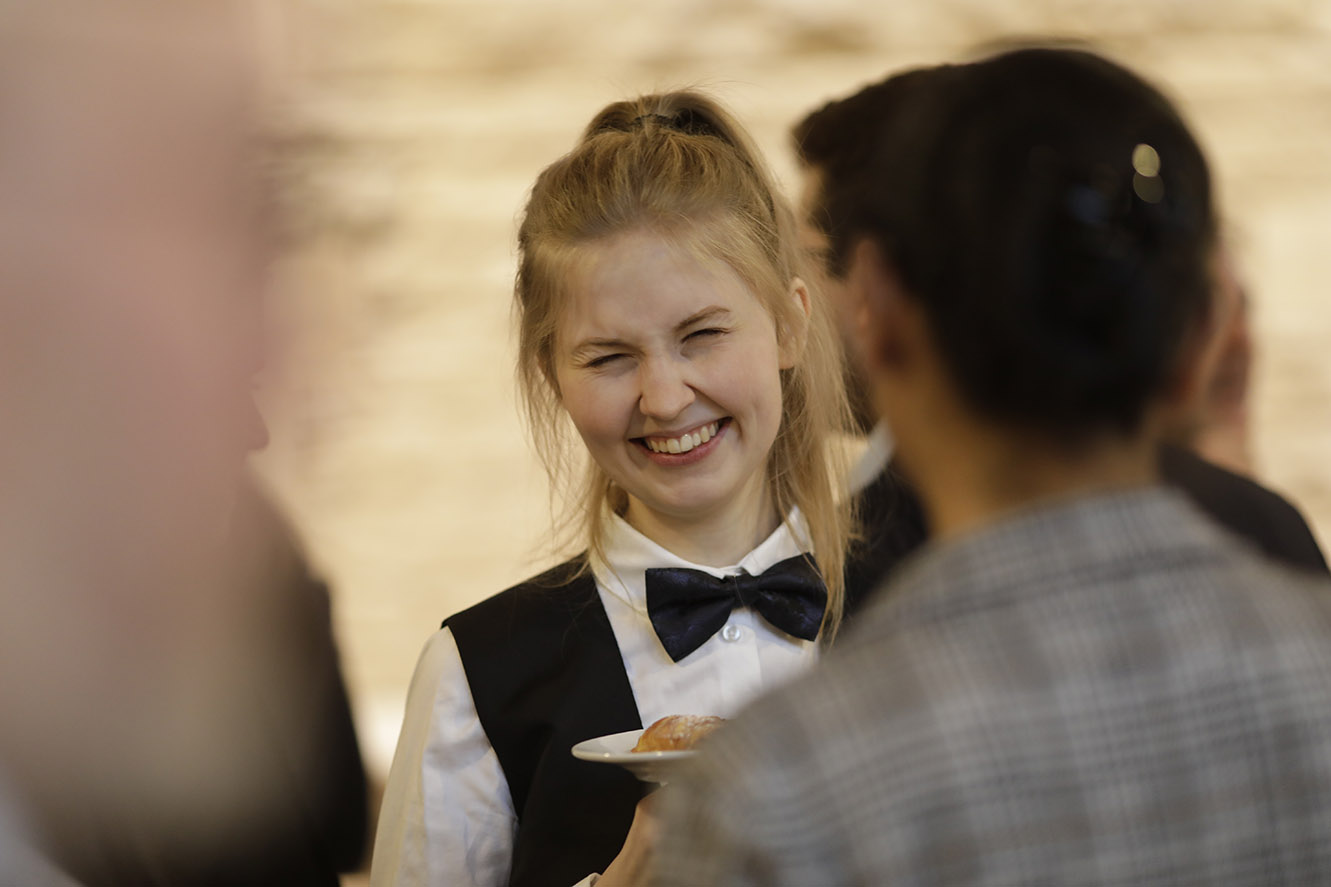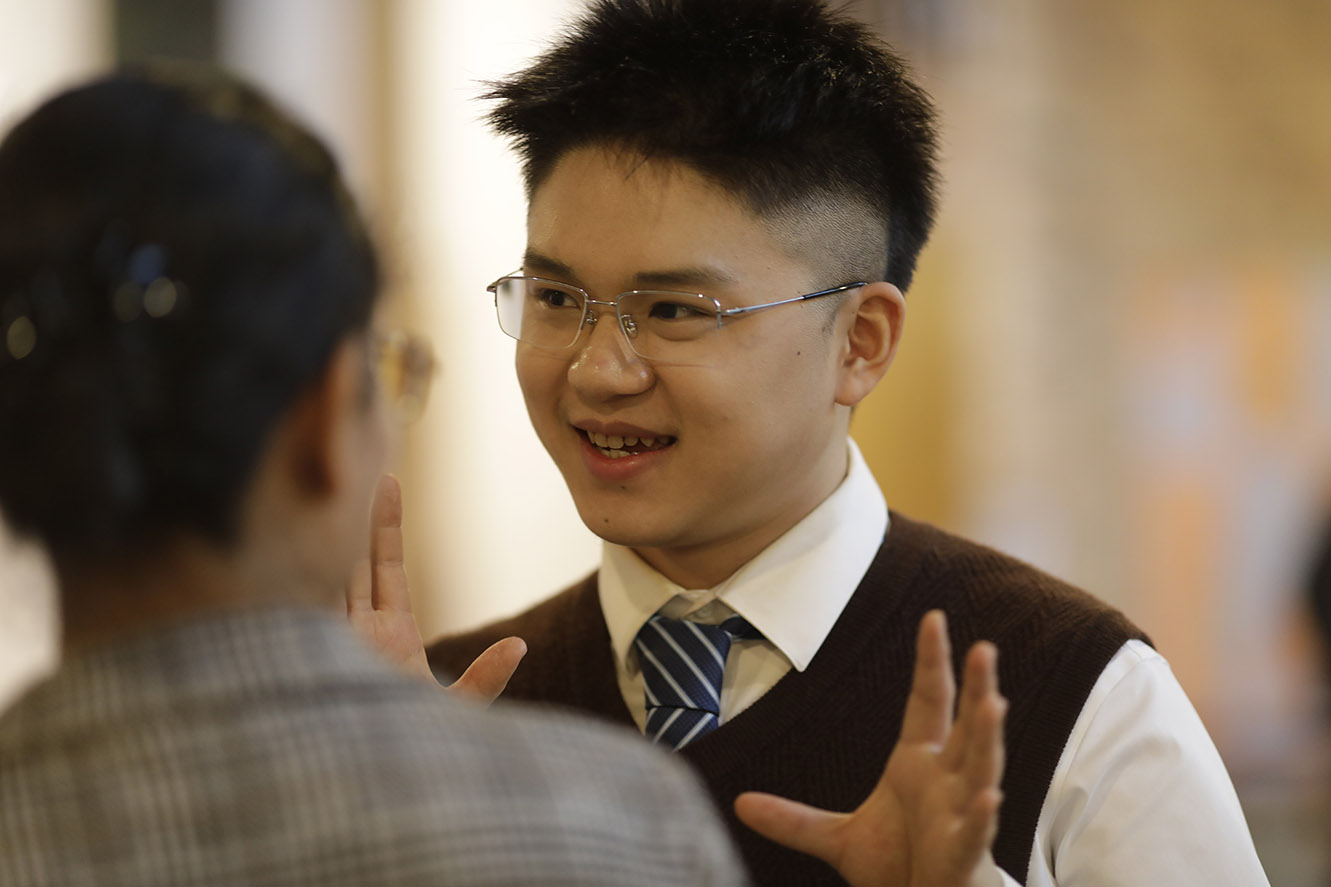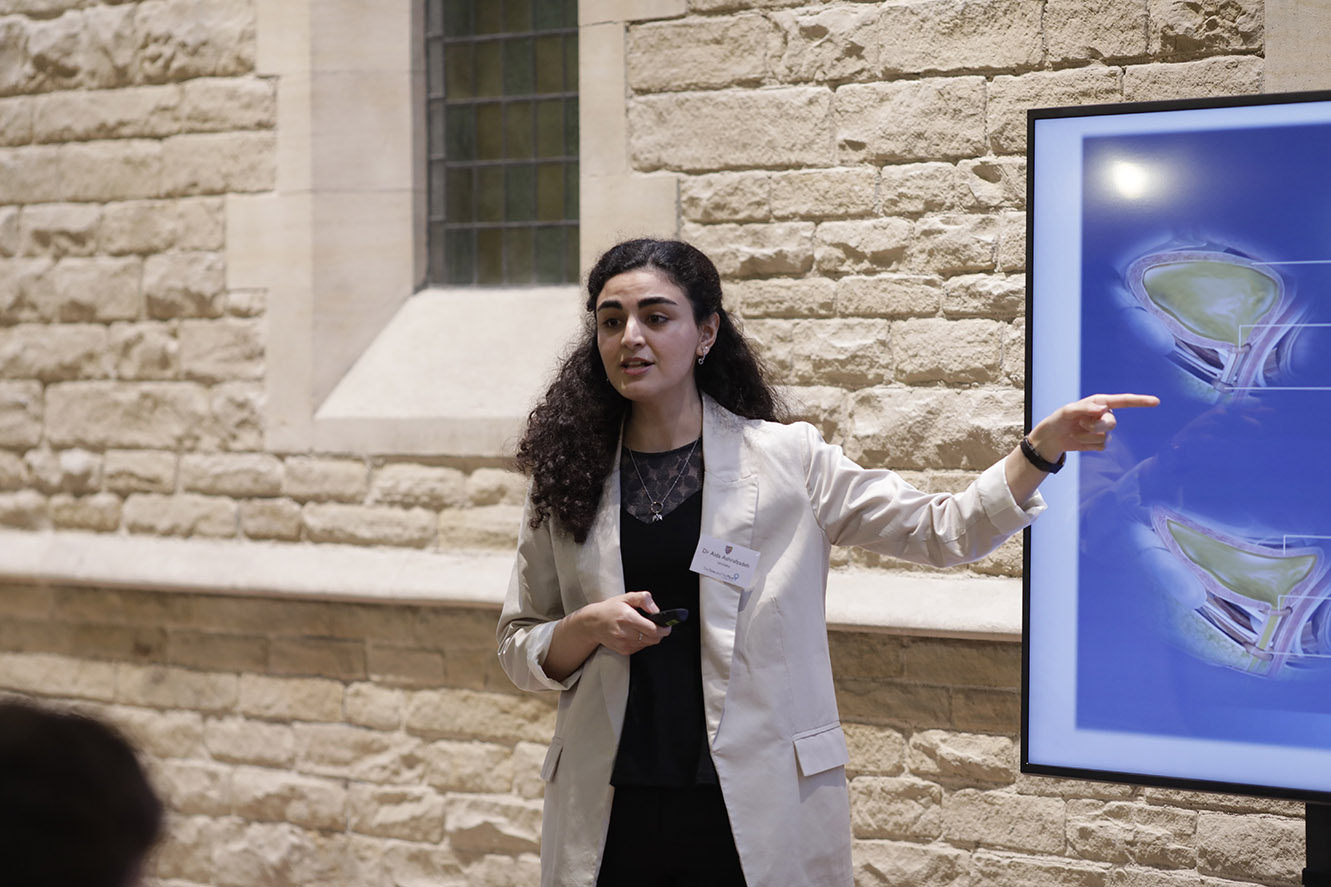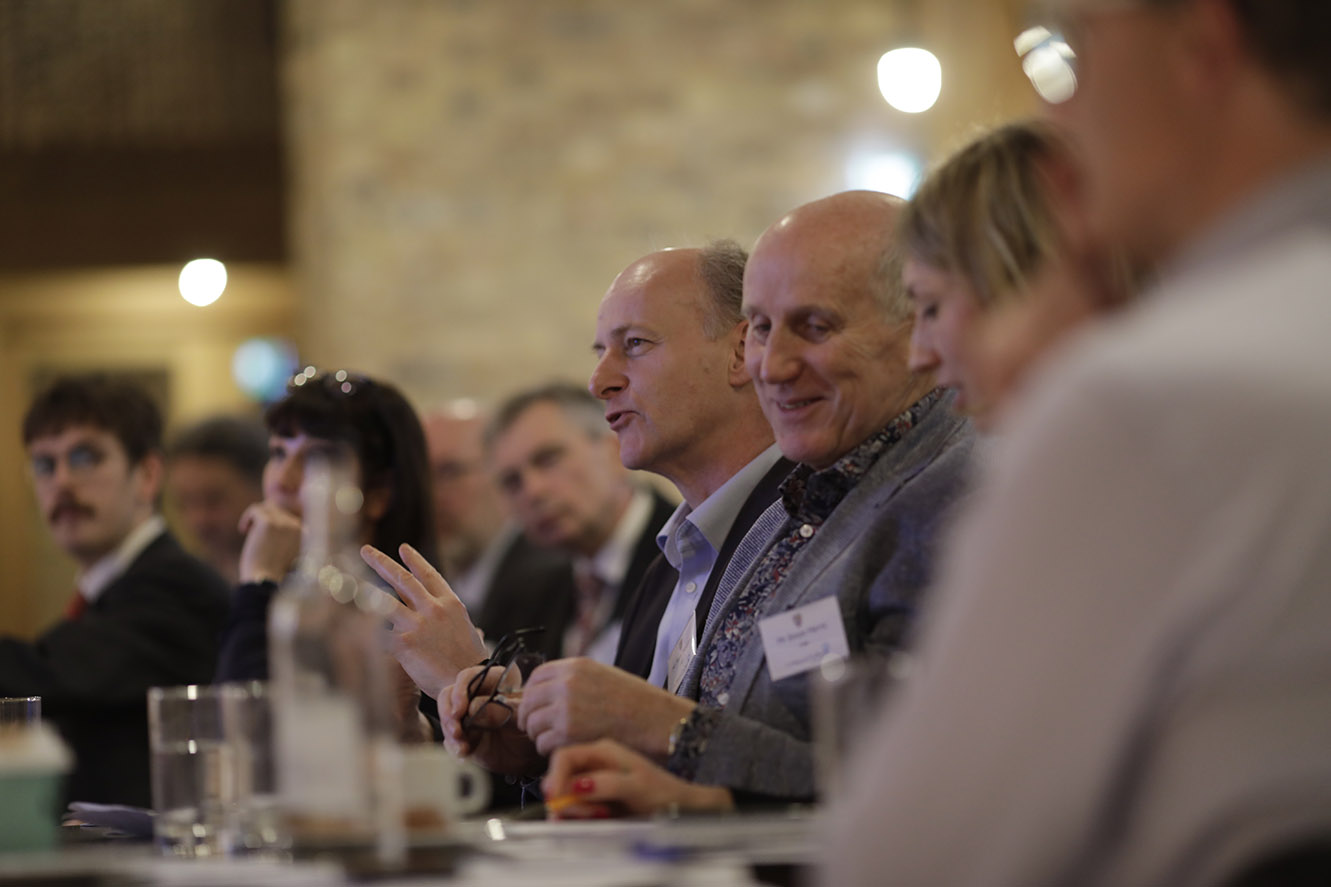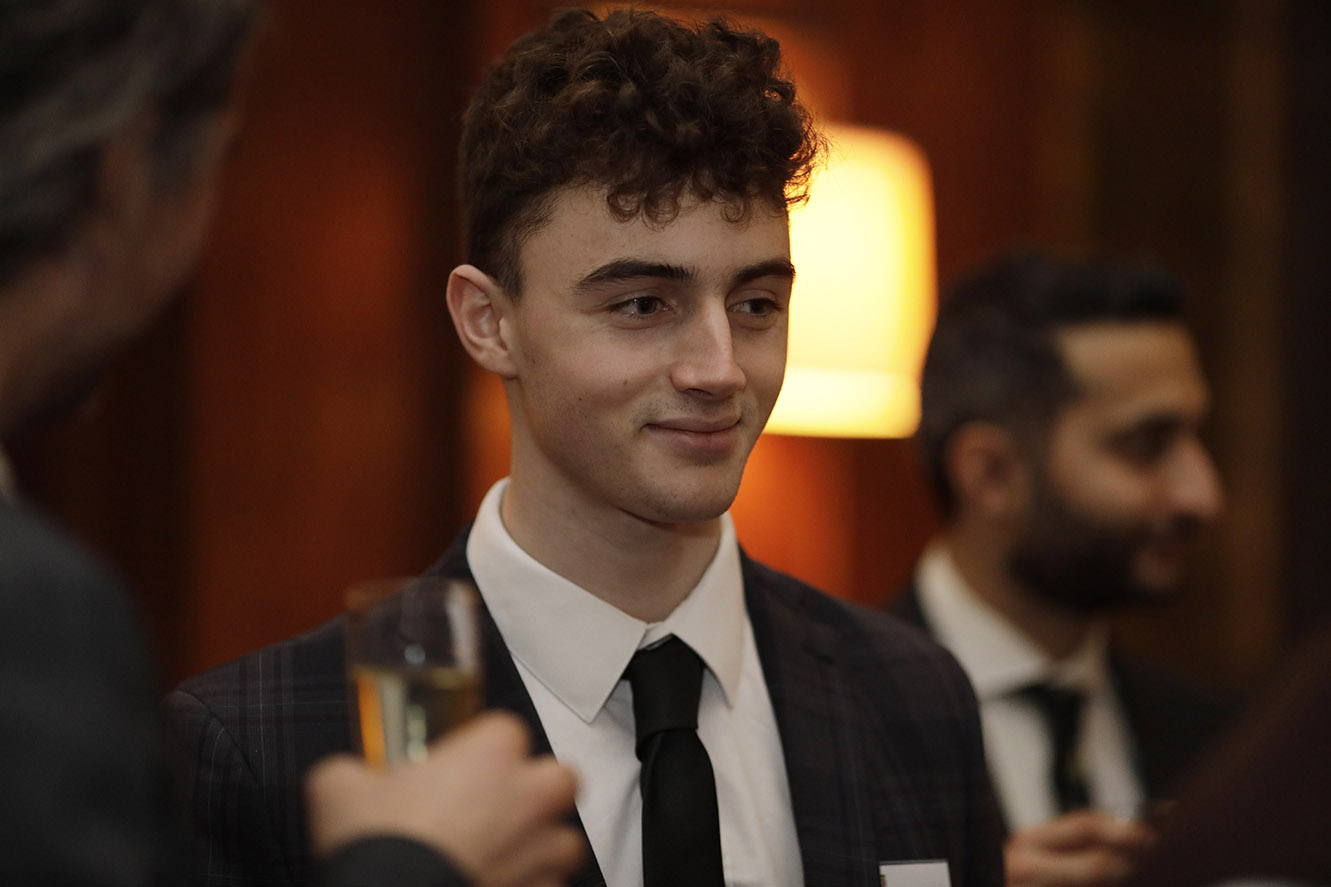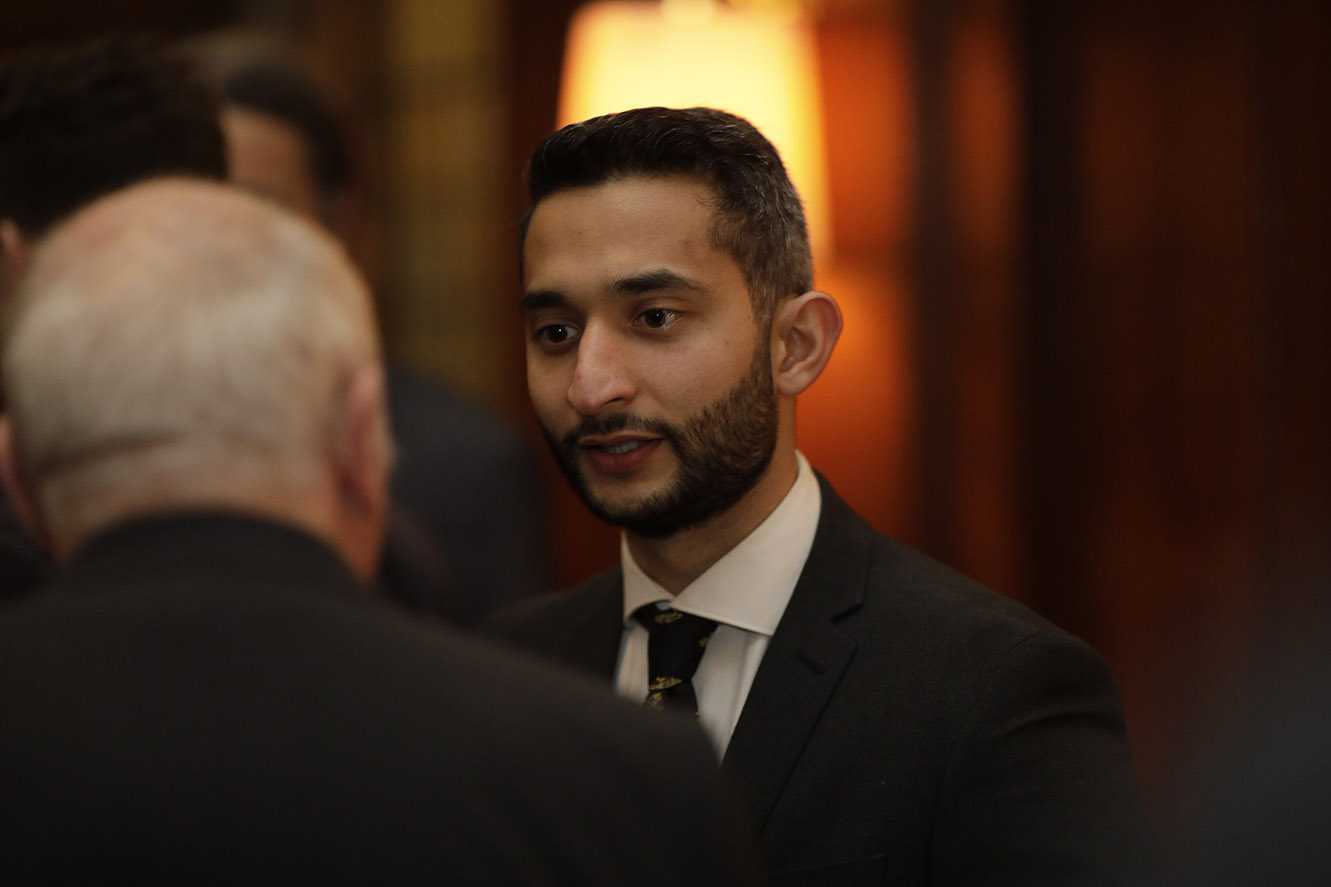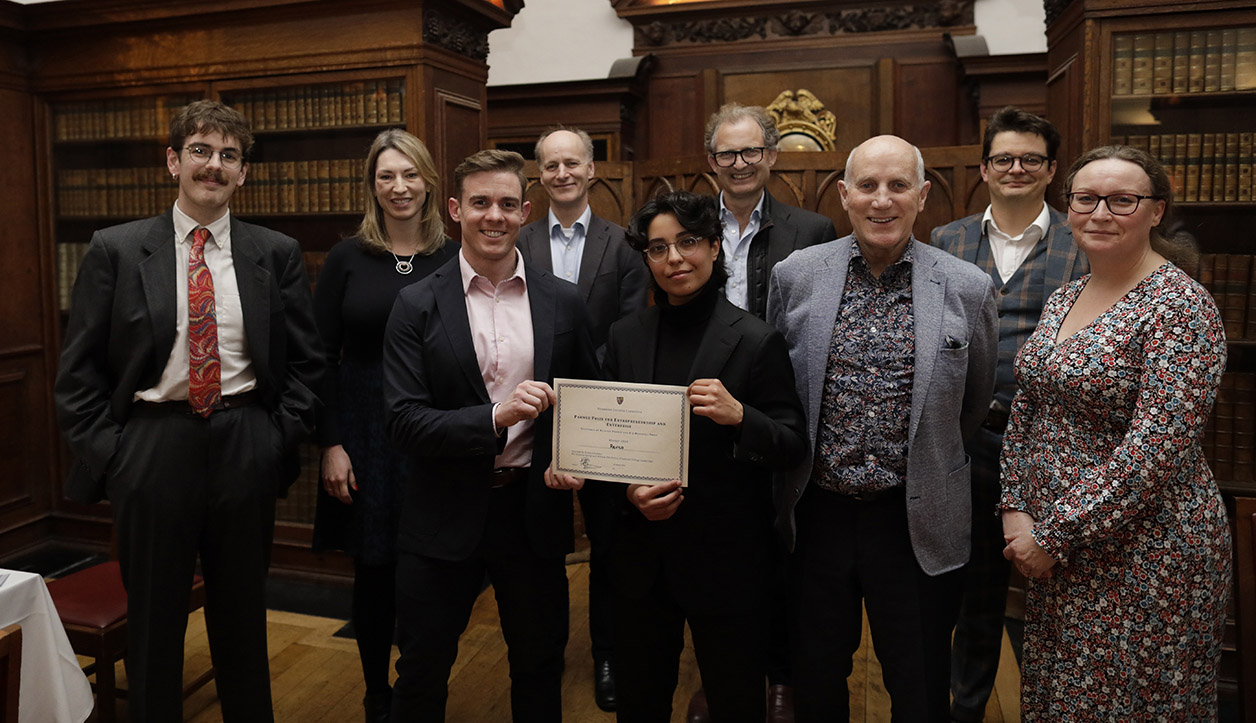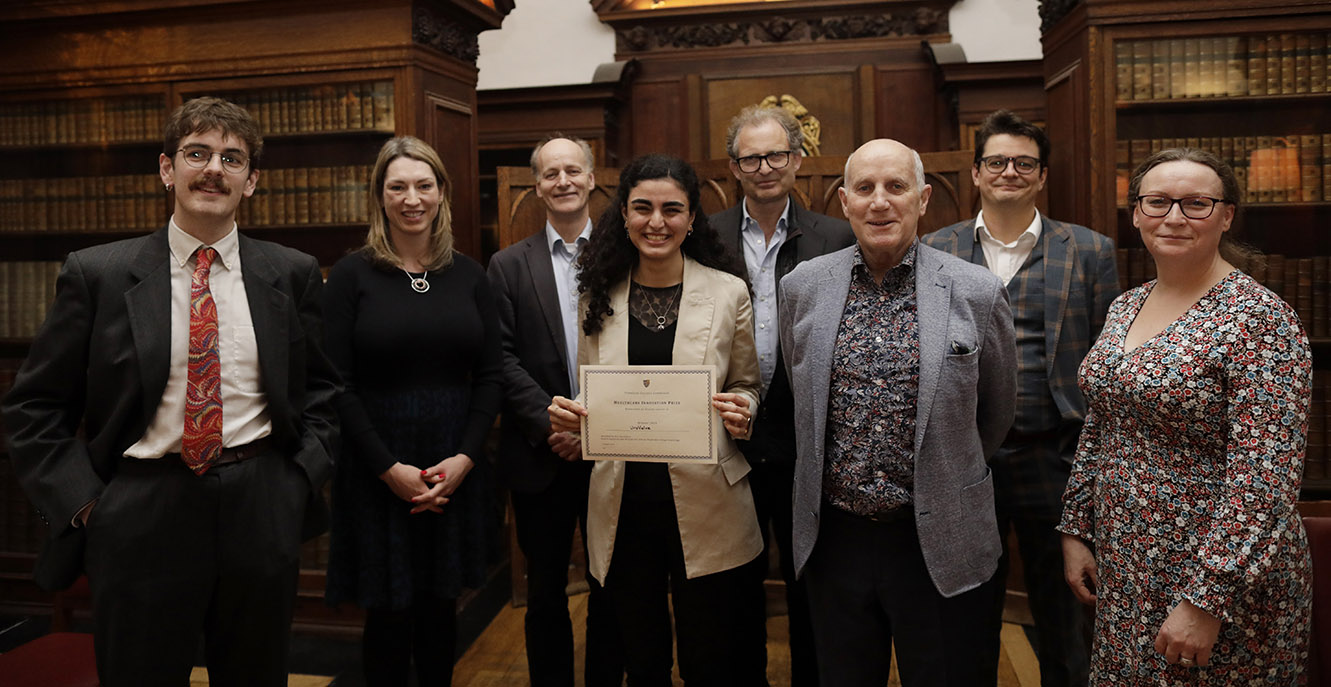Parmee Prize 2024 for Entrepreneurship and Enterprise
The 2024 Parmee Prize was held in the College’s new Foyer, a perfect location for our ever-expanding and continually improving annual student business plan competition. The Mill Lane development provides new places, spaces and opportunities for Pembroke and allows us to bring more people into our activities.
This year we had five finalists, all with unique and interesting ideas for improving health, using new technologies, and addressing huge problems. Our audience from across Cambridge and beyond heard how AI could revolutionise teaching and building planning, how novel apps could help those will allergies or those who were looking for sustainable adventures, or how modern materials could produce a novel urinary catheter.
Since 2007, Dr Richard Parmee (1970) has encouraged and nurtured students of all stages of their studies into the world of entrepreneurship. Many of the people he has mentored have gone on to be hugely successful, and it all started with the idea that a small prize and some good advice could help prevent many of the mistakes that new entrepreneurs make. The prize is also supported by Robert Marshall (1981).
In addition to moving from our usual venue to the fabulous foyer, we also had an additional prize available this year - £2000 donated for the best healthcare innovation given by Dr Rav Seeruthun, former William Pitt Fellow and Co-founder of healthequity.ai.
We were thrilled to welcome our regular judging panel in a line-up, unchanged since 2017, that includes Dr Mark Mann (1999), Simon Harris (1969), Dr Samantha Deacon (2004) and Piers Morgan (1985) chaired by Robert Marshall (1981).
Our first finalist was Nikola Datkova (2023) with Dare, a subscription box service that encourages its subscribers to think out of the box and challenges them into agency, authenticity, and adventure. Nikola gave a passionate introduction to the potential of the business, including a slightly angry looking cat. The judges asked probing questions on the business model and the sustainability credentials of the box’s contents, which were expertly dealt with.
Second to present was Pembroke student Sara Almahri (2022) with Clare EMBA student Thomas Barber with their proposal for Revco. Regular Parmee Prize followers would have recognised Sara from her pitch last year, Sensy, a 3D weight sensor for automating stock control. Revco is a completely different idea which aims to automate the generation of bill of quantities in the construction industry. Thomas and Sara gave a compelling pitch on the scale of the problem, their solution to it, and the potential the idea has. Our panel had a lot of questions about the accuracy of the output and the target customers.
Finally, before a short networking break we heard from Pasidu Perera (2022) with his non-profit Shiv’s Legacy, an organisation he co-founded following the death of his friend Shiv Mistry from an allergic reaction. The ‘Shivlet’ app helps people with allergies communicate their allergens when travelling and eating out, and Pasidu’s business plan also included workshops in schools to help raise awareness of the seriousness of allergies. Following a moving presentation Pasidu answered the panel’s myriad questions on the way the app worked and its potential.
After the break Graduate student Dr Aida Ashrafzadeh (2023) presented UroValve, an implantable device to assist patients with spinal cord injury and urinary incontinence. The judges made helpful suggestions about potential patenting of the device and the processes needed to approve the catheter for use in patients.
The final pitch was presented by semester students Aaron Hu (2023) and Ruiying Xiao (2023). Ruiyang was not able to be present in person and so gave her part of the pitch as a video and then joined the Q&A virtually. Their pitch, Phosphor AI, is a platform that leverages advanced AI to reduce educational disparities by providing a user-friendly AI tutoring system that uses pedagogical understanding to tailor the experience for each user, much as a human tutor would. The team has an impressive track record of delivering tutoring in person and has brought this to bear in the app’s design and realisation. Aaron and Ruiying answered the panel’s challenging questions with assurance and enthusiasm.
As usual, the judges then retired to make their deliberations, this year deciding if an additional healthcare prize should also be awarded, while the audience who had waited very patiently were finally able to ask their questions of the finalists. The team leaders nimbly responded to a number of points made by our attendees from a variety of organisations including Cambridge Angels, Cambridge Enterprise, KPMG and Cambridge Management Consulting.
The entrants, audience and judges then reconvened in the Old Library and over a glass of champagne Robert Marshall announced the winners – Aida with UroValve for the Healthcare Innovation Prize and Sara and Thomas with Revco for the Parmee Prize. Robert gave some valuable feedback to all of the finalists before we all sat down for dinner and more conversation, including catching up with past entrants and continuing the advice-giving to our bright new crop of entrepreneurs.

